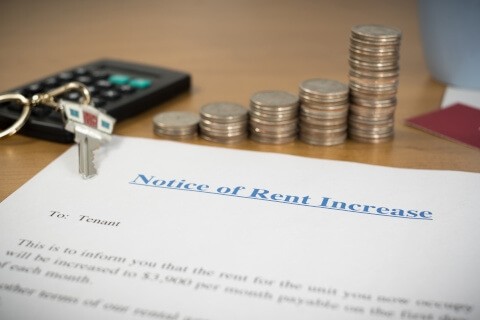Owning and managing a rental property comes with its fair share of challenges and decisions to make. Whether your real estate investment business is growing or you’re just reconsidering your finances, you might be thinking about creating an LLC for your rental property. This article discusses what an LLC is, how an LLC is formed, and the positives and negatives of creating an LLC for your rental property.
What Is an LLC?
An LLC, shorthand for Limited Liability Company, is a business structure that ensures the owners are not held personally liable for any claims against the company or debts that the company owes. An LLC allows its owners to be taxed as a partnership while affording them the limited liability of a corporation. LLC regulations vary by state, so be sure to check your state laws for more specifics.
What Are the Benefits of Having an LLC?
Some of the primary benefits of having an LLC for your rental property include:
- Your personal assets are safe from any lawsuits
- You have more flexibility with your company’s management structure
- In most states, an LLC can be considered a pass-through entity, so you reap the benefits on your personal tax returns while still maintaining legal separation
- It’s easier for you to separate your business expenses from your personal expenses
What Are the Downsides of Having an LLC?
While there are plenty of benefits, there are also several downsides that come with having an LLC for your rental property, such as:
- If you don’t keep your personal and business expenses separate, a judge can rule that your personal assets are not safe from a lawsuit
- You have other financial implications to consider like business taxes, registration and renewal fees, employment taxes, and other local fees
How to Start an LLC
Before you decide to start an LLC, be sure to consult a certified public accountant or an attorney for specialized advice regarding whether or not an LLC would be beneficial for your business.
After your consult, decide on a name for the LLC. Check your state’s business name database to ensure the LLC name isn’t already taken. Work with an attorney or registered agent to draft the LLC paperwork and file it with the state. When you file your paperwork, you can expect to pay a filing fee, which can vary depending on where you file. You will then get a certificate from the state confirming that your LLC exists. Make sure that your LLC is registered in the same state as your rental property.
Transferring Your Rental Property Into an LLC
If your rental property already has a mortgage, you will have to transfer the title of your mortgage to the LLC. Contact your lender regarding the specifics of what this entails. Some lenders may require you to pay off the mortgage before transferring, while others will permit transferring the title to the LLC, as long as you remain responsible for making payments.
Apply for an Employer Identification Number (EIN) and open a business bank account for the LLC. Then, fill out, sign, and submit a deed to transfer your rental property to the LLC.
Once you’ve completed your ownership transfers, update your lease and notify your tenants that rent payments should be payable to the LLC rather than to you individually.
Alternative to an LLC
If you’re unsure about transferring your rental property into an LLC, consider purchasing an umbrella insurance policy. This kind of policy provides landlords with additional liability protection, beyond standard insurance policies, should any lawsuits arise regarding your rental. The cost of an umbrella policy varies depending on where you’re located and can often be purchased from your current insurance provider. No matter what you choose, assess your finances first. To keep all your transactions in one place, track your expenses with Apartments.com. Our platform helps give you a detailed overview of your rental-related costs so you can easily see how much you have to dedicate to new business ventures.











